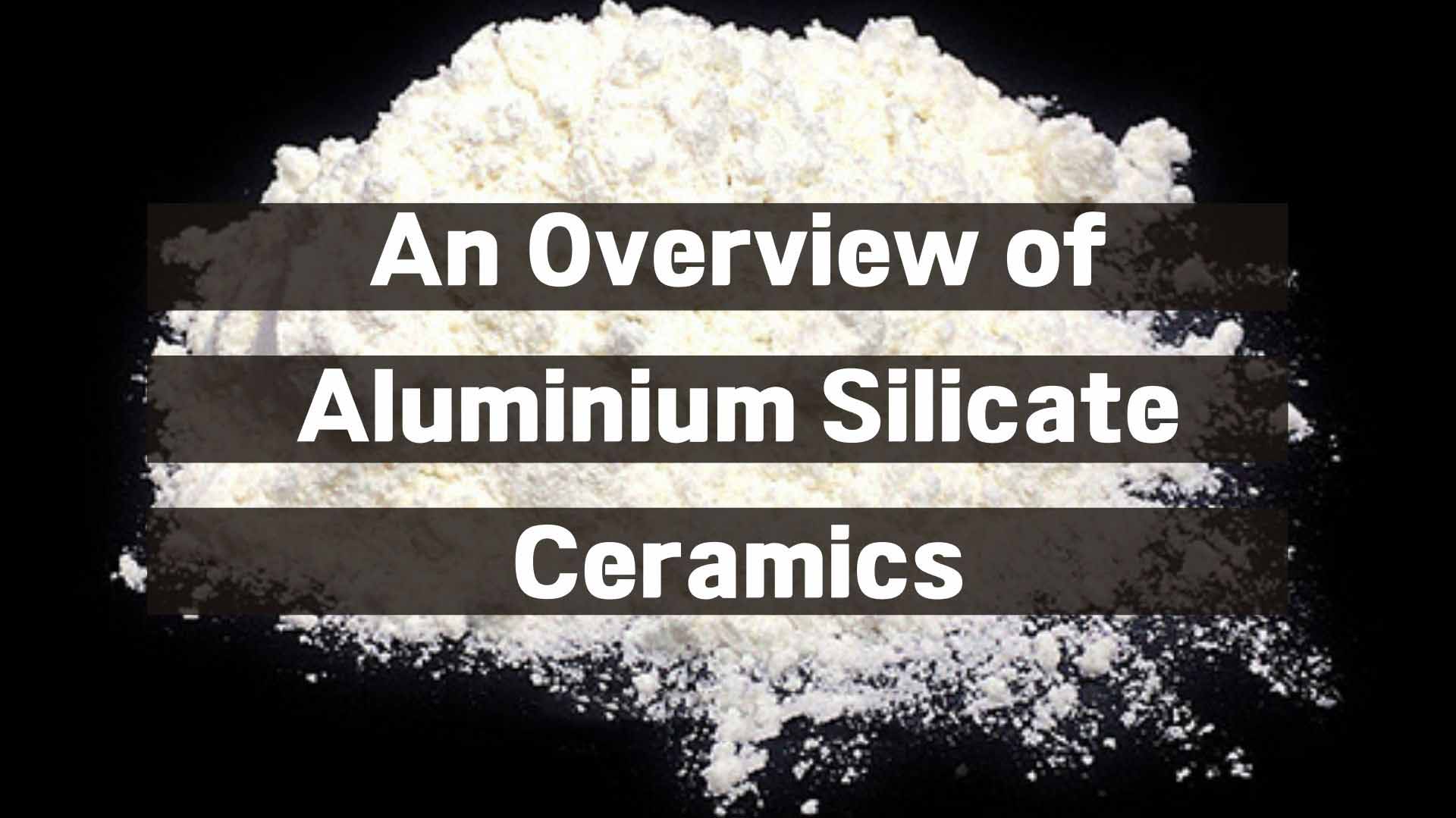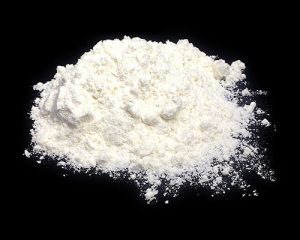- Alumina
- Boron Nitride
- Zirconia
- Other Ceramics
- Applications
- Contact

Aluminum silicate refers to compounds gotten from both aluminum oxide and silicon dioxide. Aluminum silicate generally has a molecular weight of 162 g/mol. There are various types of aluminum silicate, and these compounds could come in a natural or synthetic form. When aluminum silicate has no water added to it, it can be found in the form of minerals such as sillimanite, kyanite, and andalusite. These minerals have a common chemical formula (Al2SiO5) but can be differentiated by their crystal structure. When aluminum silicate is hydrated, it gives rise to Kaolin. Kaolin is a clay mineral. Its chemical formula is Al2O3.2SiO2.2H2O. The various forms of aluminum silicate have their unique properties and application.

Andalusite is one of the naturally occurring forms of aluminum silicate. This form of aluminum silicate is usually found in metamorphic rocks. It is named after a community in Spain known as Andalusia. However, studies have shown that this mineral was originally found in, Guadalajara, a province in Spain.
In recent times, commercial quantities of Andalusite have been found in Brazil, the United States of America, Russia, South Africa, Zimbabwe, and Sri Lanka. Andalusite can be found in a wide range of colors. It could be gray, green, white, pink, yellow, or even violet. Like other aluminum silicate minerals, its chemical formula is Al2SiO5. However, it has an orthorhombic crystal lattice.
Kyanite is another form of aluminum silicate. This form of aluminum silicate is often found in metamorphic and sedimentary rocks. It is also referred to as disthene or cyanite. Also, kyanite is more stable at high pressure than the other aluminum silicate minerals. As opposed to the other aluminum silicate compounds with its chemical formula, kyanite has a triclinic crystal system.
The strength of kyanite is highly dependent on its direction. For instance, it shows more strength perpendicular to an axis and shows less strength parallel to the same axis. For this reason, it is described as anisotropic. This mineral compound usually appears blue. However, it can also appear green, white, or gray. Nepal, Tibet, Brazil, Kenya, the United States of America, and Russia are some places where Kyanites can be found.
This tough aluminum silicate compound derived its name from an China chemist called Benjamin Silliman. It is usually stable under high temperatures. Sillimanite is usually gotten from sedimentary rocks. It has the same chemical formula as the other aluminum silicate minerals. Sillimanite has an orthorhombic crystal system.
This mineral can occur in a wide range of colors. It can be colorless, green, yellow, brown, blue, or grey. Sillimanite occurs in a form known as fibrolite. This form of sillimanite is so named because it exists like bundles of twisted fibers. It can be found in Brazil, Sri Lanka, Germany, Italy, and India.
This aluminum silicate is also called china clay. It is formed when aluminum silicate is hydrated. It commonly exists as a cream-colored claylike mass. Kaolin is flexible but it is not elastic. It usually has a dull appearance, unlike sillimanite, kyanite, and andalusite. It derives its name from a Chinese village called Gaoling. Kaolin is usually derived from soils formed from weathered rocks in humid places like tropical rainforests.
It is usually found in countries such as South Africa, China, Malaysia, France, Pakistan, Tanzania, Brazil, Iran, and the United States of America. Kaolin has a wide range of uses in various parts of the world that will be discussed further along.
Aluminum silicate polymorphs are used to produce refractory products. These bricks are made to withstand high temperatures without any damage. These bricks are usually used in furnaces and ovens.

Aluminum silicate is used as a raw material in making porcelain fixtures. Kaolin is subjected to a high temperature to produce porcelain.
Andalusite, sillimanite, and kyanite are commonly used in making jewelry. This use can be attributed to their characteristic luster. Kyanite is especially appreciated for its blue color.
In the cosmetic industry, aluminum silicate is used to make a wide range of products. It is used in the manufacture of face masks, face powders, and lotions. This is because aluminum silicate has a high absorbance for oil.
Kaolin has a lot of important uses in medicine. It is used to promote blood clotting. In addition, it is used to treat diarrhea.
Aluminum silicate is used as a filler to add bulk to products in various industries. It is used as a filler in rubber, paper, ceramic, and drug manufacture.
In some parts of Africa such as Nigeria, Gabon, and Cameroun, pregnant women eat Kaolin for pleasure. It is a popular craving among pregnant women.
Aluminum silicate compound in its various forms is used in different industries. This makes it one of the most highly sought-after compounds.